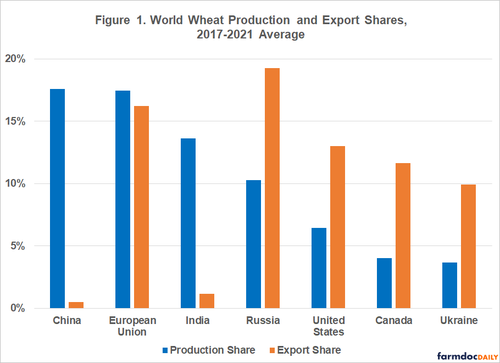from Zero Hedge, 2 July 2022
After threatening to do so for a couple months now, Russia has pulled the trigger on expanding the list of commodities for which it demands payment in rubles to now include grain exports, effective Friday per a government legal website.
So now grain, sunflower oil and extracted meal are the next to follow the March decision to charge clients from "unfriendly" countries - including major customers in Europe - in rubles for natural gas instead of the normative dollars and euros.
On top of this move, recently Agriculture Dmitry Patrushev announced that Russia's agricultural products will go to "friendly countries" only, and according to "who needs it most" - a hugely significant statement sure to continue sowing uncertainty and chaos for the global food supply.
Via Farmdocdaily: Russia and Ukraine account for 14% of global wheat production and rank 1stand 5threspectively. Both countries are prominent exporters, providing nearly 30% of global wheat exports. The EU, U.S., and Canada are also major producers and exporters of wheat. China and India are major wheat producers, but are net importers and provide relatively small shares of global wheat exports. Other countries with fairly large wheat export shares include Australia (8.4%), Argentina (6.6%), Kazakhstan (4.1%), and Turkey (3.4%).
Russian state media detailed further
of the new decree published to a government law portal, "It also
provides for a one-year extension of duties to be paid in the national
currency in respect of exported sunflower oil and sunflower meal until
August 31, 2023."
And further, "As part of the new payment mechanism, the base price for
calculating the export duty on wheat will be 15,000 rubles (over $267)
per ton."
While Russia has blamed Western sanctions aiming to punish and isolate the Russian economy for blowing back on the global food supply, and especially the Middle East and African countries already heavily reliant on Ukraine and Russia grain exports, G7 countries days ago at their summit in Germany blasted Moscow in a statement for what it called "a geopolitically motivated attack on global food security."
EXPLORE OUR NETWORK:
[ Ian at Facebook ]

